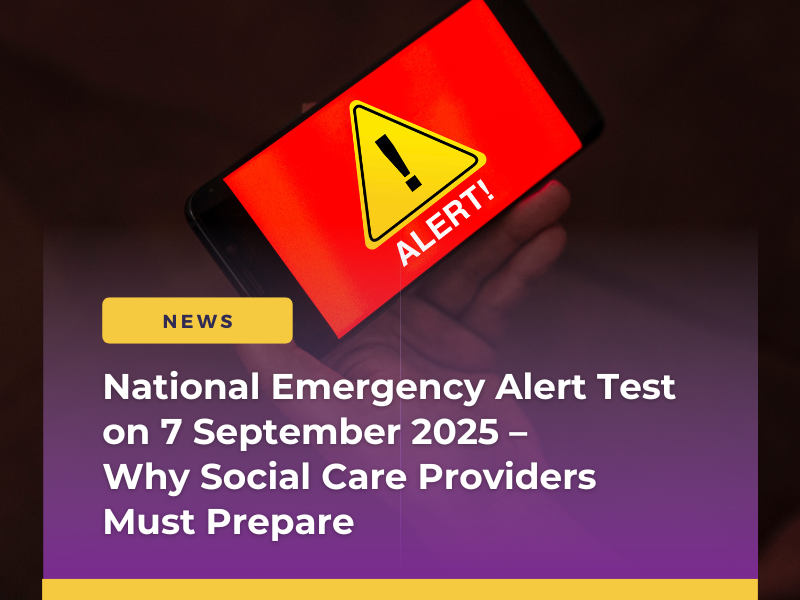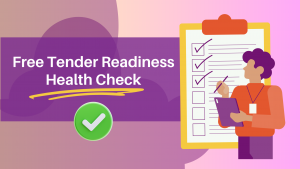On Sunday 7th September 2025, at around 3pm, every compatible mobile phone in the UK will sound a test emergency alert.
The siren-like alarm will last around 10 seconds and display a message on screen – even if the phone is on silent or vibrate mode. The Government estimates that around 87 million phones will receive the test at the same time.
The system is designed to save lives by delivering fast, location-based warnings in situations such as:
- Extreme weather (floods, wildfires, storms)
- Public safety emergencies
- Other life-threatening incidents
Testing ensures the alerts will work when needed most. But for those working in social care, it also raises an important consideration: how will this sudden, unexpected alarm affect residents, service users, and staff?
Why this matters for social care settings
Care providers support some of the UK’s most vulnerable people. For individuals living with dementia, learning disabilities, mental health conditions, or perhaps particularly autism, a loud, unexpected noise could cause confusion or anxiety.
In care homes, supported living, domiciliary care, and day services, staff should take steps to minimise any impact from the alert and will need to be ready to respond calmly in the event of any impact. A moment that may pass unnoticed for many in the general population could feel alarming for someone in your care.
Practical steps for care providers
To avoid unnecessary disruption, consider the following ahead of the test:
1. Brief your staff teams
- Make sure anyone on shift at 3pm is aware of the alert.
- Remind staff and Service Users/Residents it is only a test and nothing to worry about.
2. Reassure residents and service users
- Where appropriate, explain the alert in advance.
- Use simple, clear language: “There will be a loud noise from phones at 3 o’clock, but it’s just a test. You’re safe.”
3. Communicate with families and visitors
- Let visitors know about the test so they can support residents.
- Share updates through noticeboards, newsletters, or family WhatsApp groups.
4. Support individuals who may find it distressing
- Identify residents or service users who may be most affected.
- Remove mobile phones from the vicinity to create quiet spaces, or plan distraction activities or extra staff support during the alert.
Turning a disruption into an opportunity
The emergency alert test is a reminder of the wider importance of emergency preparedness in social care. Whether it’s a heatwave, power cut, or national alert, being proactive helps services protect people and keep anxiety to a minimum.
This test also provides an opportunity to strengthen your disaster planning and compliance records. Many care providers working towards standards such as ISO 9001 or preparing for audits can use the alert as a practical exercise. For example:
- Document how your service prepared staff and residents for the alert.
- Record how you responded during the event.
- Review any lessons learned and note them in your risk management or business continuity plans.
Being able to evidence that you tested communication and preparedness in a real-life scenario can be a valuable talking point with auditors, inspectors, or regulators. It shows that your service doesn’t just plan on paper – it actively puts resilience measures into practice.
By preparing for this nationwide test, you show residents, families, and inspectors that your service is responsive, person-centred, and resilient – values that sit at the heart of outstanding care.
Key takeaway
Mark Sunday 7th September at 3pm in your diary, brief your staff, remove mobile phones where feasible and be ready to reassure Service Users/Residents. What could feel disruptive for some is an opportunity for your service to show calm leadership and a commitment to safety.
Need extra support?
At Insequa, we help care providers strengthen their services, policies, and compliance. If you’d like advice or guidance tailored to your organisation, get in touch with our team – we’re always here to help.






